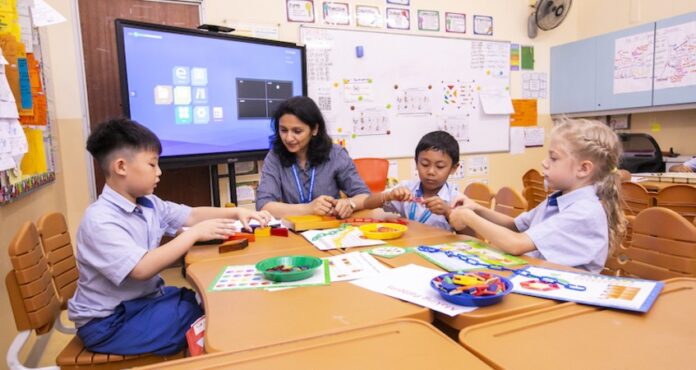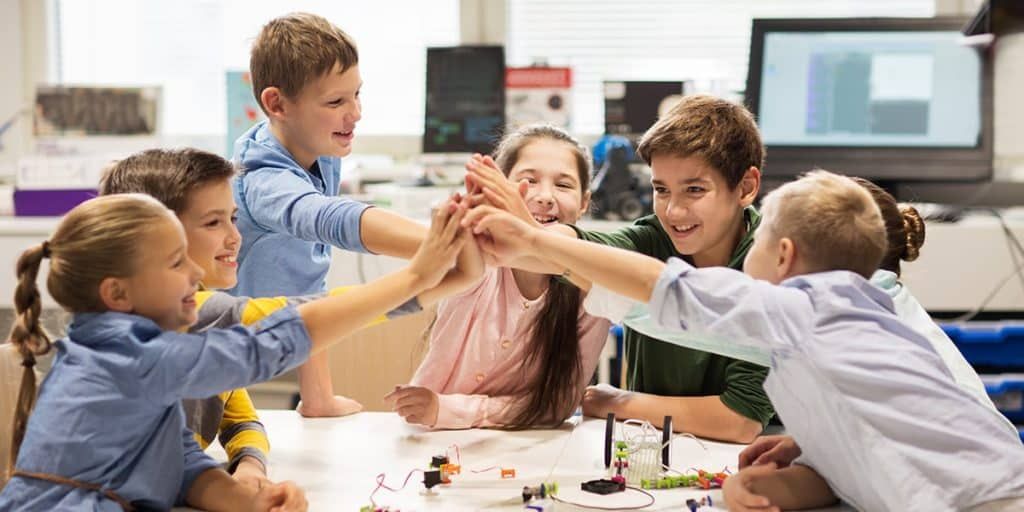The formation of comprehensible critical thinking starts from an early age. Thus, modern educational institutions introduce programs for primary school to enroll children mildly into the complex world of developing thinking skills.
The primary years programme (PYP) is a transdisciplinary package of subjects, based on the IB educational system. This program prepares children for further application to the IB Diploma.
By integrating IB-based disciplines into the education programs of primary school, pupils get accustomed to a new way of thinking and the development of the education process.
As a result, they improve their skills and knowledge, perceive information better, and do not experience stress when they face the need to apply for the IB Diploma. Below, we’re going to have a deeper look at the benefits and peculiarities of the implementation of PYP in early education settings.
Overview of the IB Primary Years Programme Curriculum

Being an IB-based transdisciplinary program, it implies providing children with a broad spectrum of subjects to learn to enhance their cognitive skills, open the horizon, and teach them a new model of perceiving information.
Pupils acquire knowledge and skills for future opportunities. Thus, when they grow up, they think differently and feel fully prepared for further study.
The main objective of the IB PYP curriculum is to define pupils’ strengths and talents and unlock their full potential. By trying different subjects, children manage to find their favorite disciplines and develop broad knowledge of them.
Another goal of the educational program is to produce caring active individuals who are ready to participate in the global arena and continue learning as world citizens.
A side benefit of being an IB PYP student is the creation of a learner profile. Pupils who graduate from the program are guaranteed to be welcome in all universities and educational institutions around the world. So, this program opens wide opportunities for future life.
Transdisciplinary Curriculum
The IB primary curriculum is transdisciplinary, which means that different subjects are united and interconnected. Thus, students proceed to explore multiple disciplines through overarching concepts. The introduction of IB learning concepts contributes to the development of the following characteristics:
- conceptual understanding;
- emphasis on collaboration and integrative strategies;
- the ability to voice and argue ideas and points of view.
The program offers to teach classic school subjects from another angle, where information is perceived better and easier, contributing to the development of critical thinking.
Curriculum Planning

When developing the PYP curriculum, tutors work in close connection with teachers of classic educational institutions to ensure coherence and progress between groups. They interconnect and discuss different aspects to provide an equal amount of knowledge to all pupils.
Also, note that the PYP program complies with the National Curriculum to ensure comprehensible coverage of all subjects and educational materials.
Thus, the program is built, taking into account the IB mechanism and putting it on classic educational systems for primary school. As a result, the blend of both concepts creates an advanced system, where commonly educated disciplines are perceived and remembered better.
CLT and Retrieval Practice
The main practice introduced by the IB PYP program implies the ability to facilitate knowledge transfer and enhance long-term memory. This concept is achieved by building new memory chains based on previously taught skills and knowledge.
That is, the regarded system uses a brand-new approach to knowledge transfer. By mastering this strategy, skilled teachers and tutors just hint pupils to move in the right direction, while they perceive the scope of knowledge deliberately.
Personal Development Curriculum
Other significant features of the IB PYP English curriculum include high personalization and a sequential nature. The program is adjusted to pupils’ ages and contains the obligatory information for each grade.
Personalization implies the inclusion of specific subjects, depending on students’ sex, age, and other peculiarities. For example, sex education or relationships for elder students.
Support for Diverse Learners

Note that the program realizes that children can join the educational process at various points and require an adaptation period. Teachers support such children and provide them with the needed knowledge and preparation to ensure targeted interventions and proper adaptations. This feature eliminates the risk of lagging down due to late joining.
If you want to get more information about the IB primary years programme (PYP), click here. A full explanation of the program is provided on the website. Managers are caring and answer all questions about the program and its peculiarities.
International-mindedness
Finally, the PYP program builds individuals with open horizons and a deep sense of interrelatedness among peoples. This can be achieved by introducing books, mobile apps, world maps, etc. This approach allows for expressing that the representatives of different communities and nations have different traditions, values, and perspectives.
The PYP program comes as an excellent booster for high educational achievements in the future. Pupils learn how to think out-of-box from the early stages, which pumps their skills and gives wide opportunities for future education. The program plays a key role in the formation of a stable base for well-rounded, competent, and inquisitive learners.







